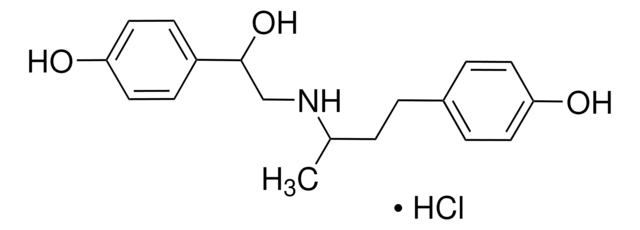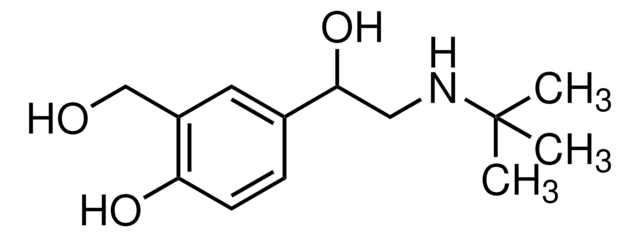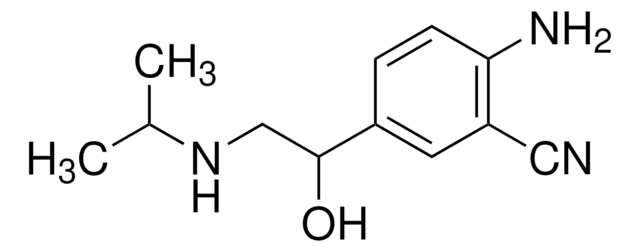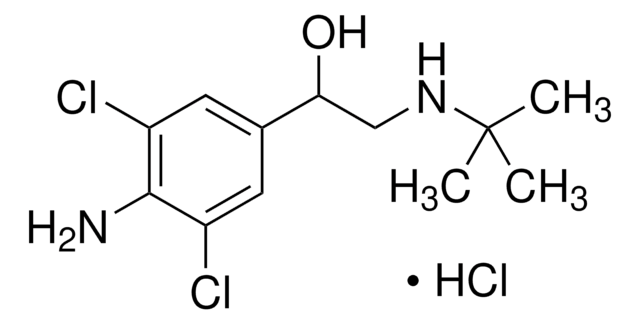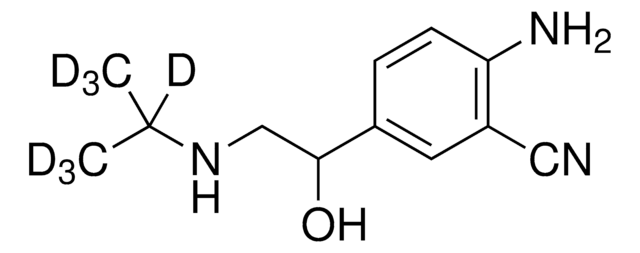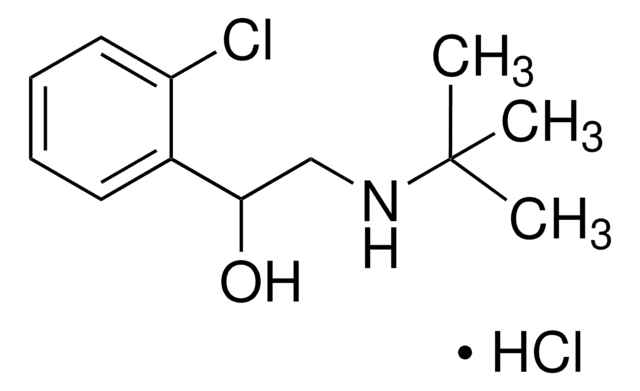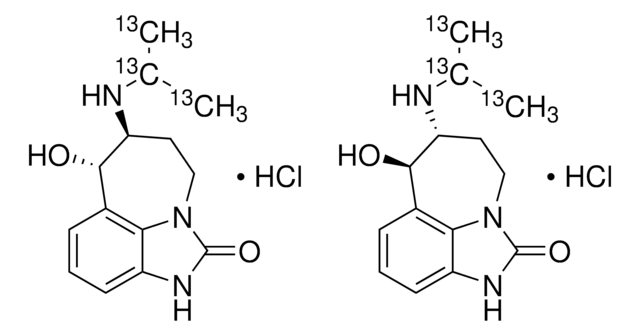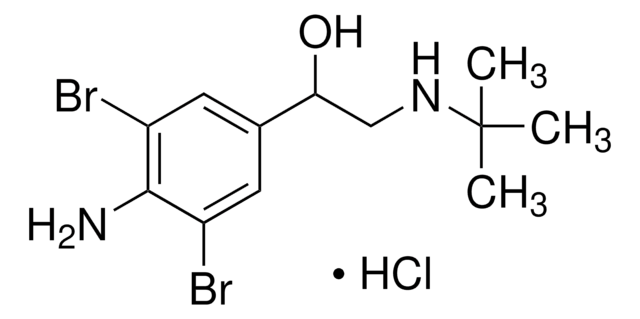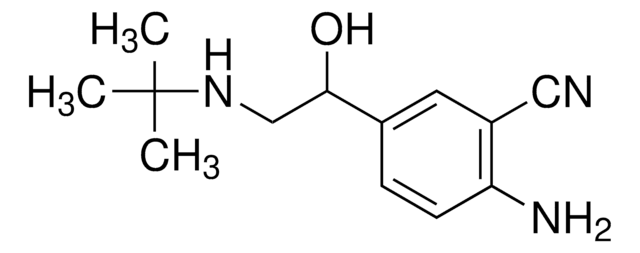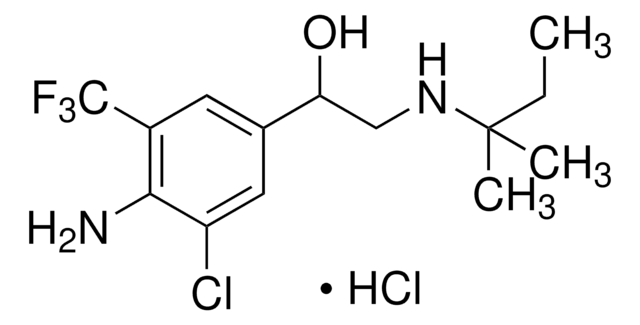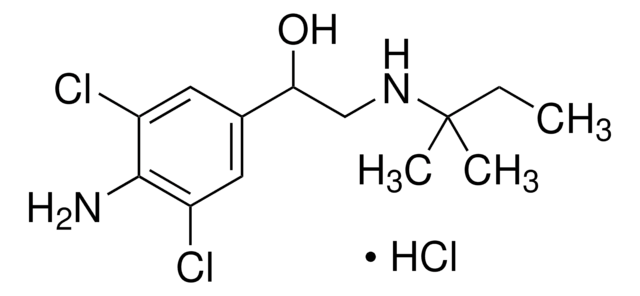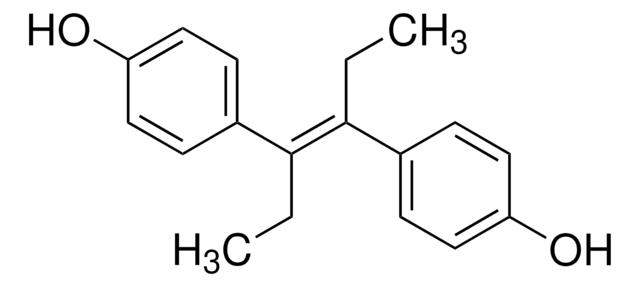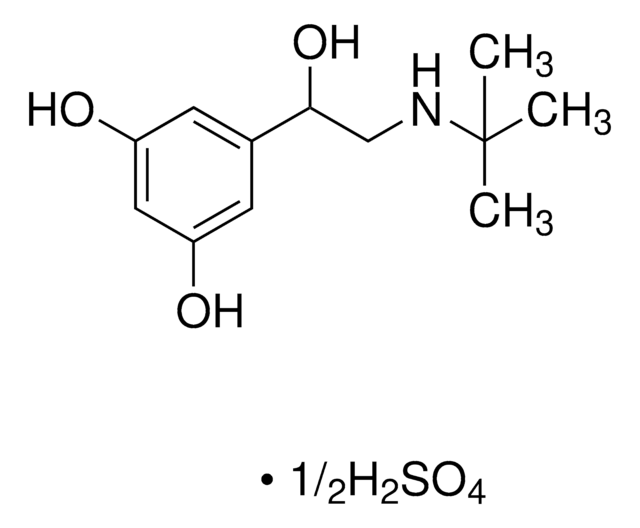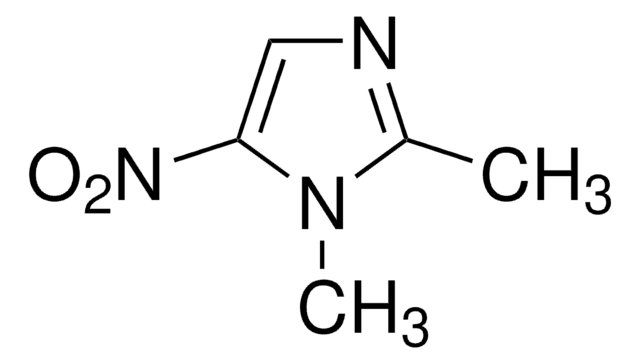32379
Zilpaterol hydrochloride
VETRANAL®, analytical standard
Synonym(s):
(6RS,7RS)-4,5,6, 7-Tetrahydro-7-hydroxy-6-[(1-methylethyl)amino]imidazo[ 4,5,1-jk][1]benzazepin-2(1H)-one hydrochloride
About This Item
Recommended Products
grade
analytical standard
Quality Level
product line
VETRANAL®
technique(s)
HPLC: suitable
gas chromatography (GC): suitable
application(s)
forensics and toxicology
veterinary
format
neat
storage temp.
2-8°C
InChI
1S/C14H19N3O2.ClH/c1-8(2)15-11-6-7-17-12-9(13(11)18)4-3-5-10(12)16-14(17)19;/h3-5,8,11,13,15,18H,6-7H2,1-2H3,(H,16,19);1H/t11-,13-;/m1./s1
InChI key
GIEFXLLRTJNFGT-LOCPCMAASA-N
Looking for similar products? Visit Product Comparison Guide
General description
Application
- Determination of zilpaterol in cattle plasma and tissue samples using solid phase extraction (SPE) well plate of 96 samples for sample preparation and subsequent analysis by liquid chromatography-triple quadrupole mass spectrometry (LC-MS/MS)
- Multi-residue analysis of 3 β-agonists, zilpaterol, clenbuterol, and ractopamine in a variety of meat samples by liquid chromatography-tandem mass spectrometry (LC-MS/MS)
- QuEChERS-based preparation of two types of animal tissue samples, muscle and viscera, for the analysis of seven β-agonists by liquid chromatography/tandem mass spectrometry
- Development and validation of an LC-MS/MS method to estimate zilpaterol, ractopamine, and clenbuterol in bovine tissue samples
- Simultaneous quantitative determination of spectinomycin, halquinol, zilpaterol, and melamine in animal feed samples by LC-MS/MS
Other Notes
Legal Information
Signal Word
Danger
Hazard Statements
Precautionary Statements
Hazard Classifications
Acute Tox. 4 Inhalation - Acute Tox. 4 Oral - STOT RE 1
Storage Class Code
6.1C - Combustible acute toxic Cat.3 / toxic compounds or compounds which causing chronic effects
WGK
WGK 3
Flash Point(F)
Not applicable
Flash Point(C)
Not applicable
Choose from one of the most recent versions:
Already Own This Product?
Find documentation for the products that you have recently purchased in the Document Library.
Customers Also Viewed
Our team of scientists has experience in all areas of research including Life Science, Material Science, Chemical Synthesis, Chromatography, Analytical and many others.
Contact Technical Service